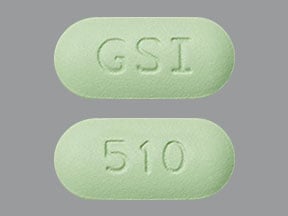
Genvoya Coupons & Savings Card – Discount Prices from $3047.41
My prescription
Edit
150-150-200-10MG, Genvoya (30 Tablets)
Select pharmacy

CVS
$5016.92
COUPON PRICE
Albertsons
$3047.41
COUPON PRICE
Walmart
$3065.08
COUPON PRICE
Walgreens
$3075.26
COUPON PRICEGenvoya savings card
Show this card to your pharmacist
Albertsons
$3047.41
BIN
ID
PCN
GRP
019876
LH5392217E
CHIPPO
LHX
Powered by
Related HIV NRTI / integrase strand transfer inhibitor combinations prescriptions
More prescriptions for hiv treatment
Related HIV NRTI / integrase strand transfer inhibitor combinations prescriptions
More prescriptions for hiv treatment
Price history for Genvoya
30 Tablets, 150-150-200-10MG
Average retail price for Genvoya
Average SaveHealth price for Genvoya
Our price history data is based on aggregated prescription data collected from participating pharmacies in America. Our prescription data updates daily to reflect the latest price changes. If you notice a missing data point, it means there wasn't sufficient data available to generate a monetary value for that date.
*Retail prices are based on pharmacy claims data, and may not be accurate when we don't have enough claims.
Genvoya dosage forms
Dosage Quantity Price from Per unit 150-150-200-10MG 30 Tablets $3047.41 $101.58
| Dosage | Quantity | Price from | Per unit |
|---|---|---|---|
| 150-150-200-10MG | 30 Tablets | $3047.41 | $101.58 |
What is Genvoya used for?
Genvoya is used for the treatment of HIV-1 infection in adults and pediatric patients who are at least 25 kg in weight. It is a combination antiretroviral medication that helps to control the virus, improve immune function, and reduce the risk of developing HIV-related complications.
Are Genvoya and Biktarvy the same?
Genvoya and Biktarvy are not the same, although both are antiretroviral medications used to treat HIV-1 infection. Genvoya contains a combination of elvitegravir, cobicistat, emtricitabine, and tenofovir alafenamide. Biktarvy, on the other hand, contains bictegravir, emtricitabine, and tenofovir alafenamide. While they share some components, they differ in their integrase inhibitors and the presence of cobicistat in Genvoya.
What happens if you stop taking Genvoya?
If a patient stops taking Genvoya, their HIV viral load may increase, which can lead to a decrease in their CD4 cell count and a weakening of their immune system. This can increase the risk of HIV-related complications and the development of drug resistance. It is important for patients to consult their healthcare provider before making any changes to their medication regimen.
How much does Genvoya cost?
The cost of Genvoya can vary depending on factors such as the pharmacy, location, and whether the patient has insurance coverage. Without insurance, the price can be quite high, often exceeding several thousand dollars for a 30-day supply. Patients are encouraged to check with their pharmacy for the most accurate pricing and to explore options for financial assistance or insurance coverage to help manage costs.
What is the generic name for GENVOYA?
The generic name for GENVOYA is elvitegravir, cobicistat, emtricitabine, and tenofovir alafenamide.
